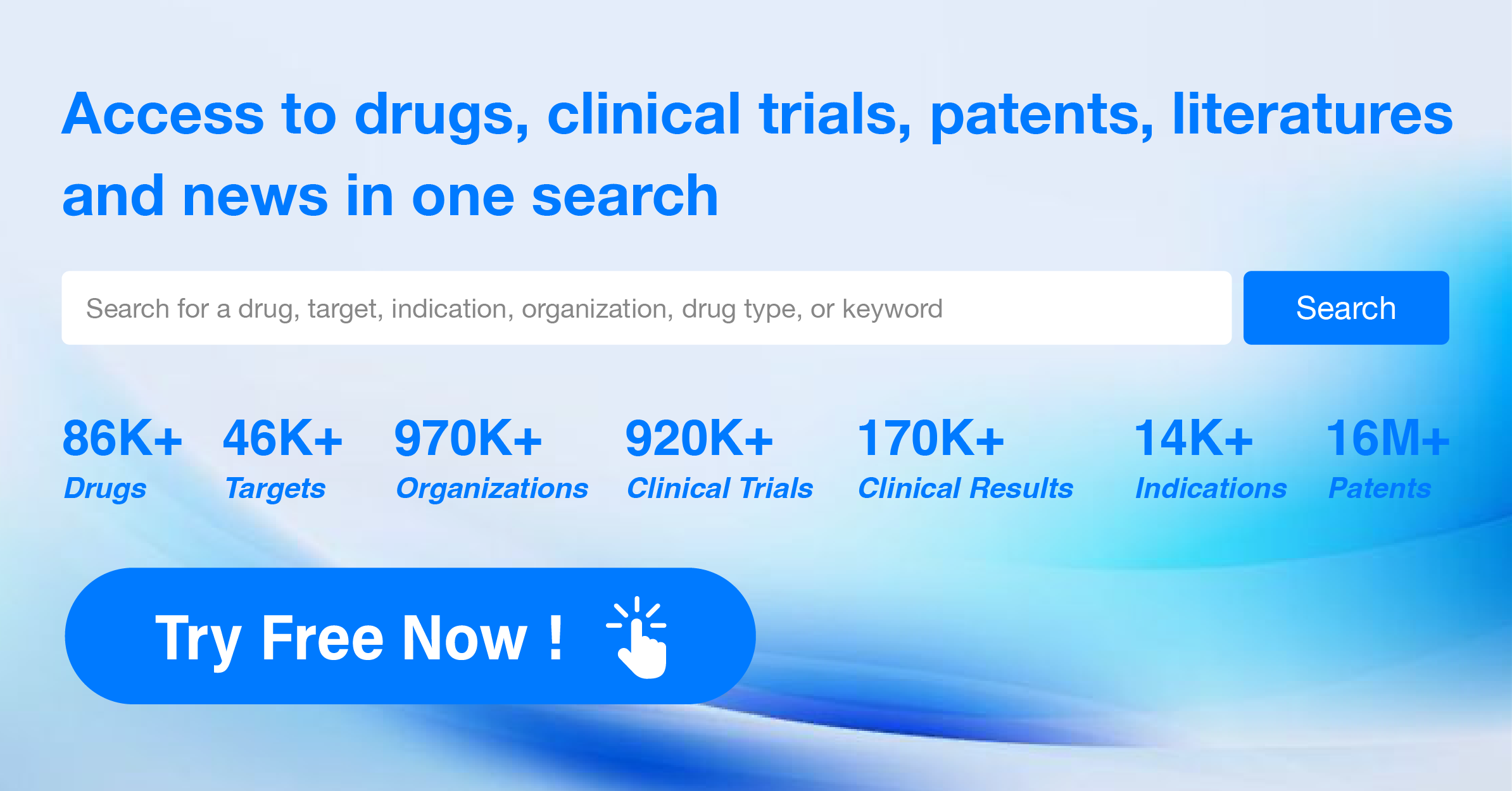Pharma Frontiers: Daily Digest of Global Pharmaceutical News - May 10
1.Huiling Pharmaceutical's Application for Marketing Recombinant Human Follicle-Stimulating Hormone δ Injection Approved
On May 9, the official website of the China National Medical Products Administration (NMPA) announced the approval of the market application for recombinant human follicle-stimulating hormone δ injection filed by Huiling Pharmaceutical (Ferring). According to public information from Huiling Pharmaceutical, this product is a recombinant follicle-stimulating hormone (rFSH), follitropin delta (brand name Rekovelle), extracted from human cell lines. It is intended for use in women undergoing assisted reproductive technologies, such as in vitro fertilization (IVF) or intracytoplasmic sperm injection (ICSI), for controlled ovarian stimulation to induce the development of multiple follicles.
Infertility is a global public health issue affecting many couples of reproductive age. Rekovelle is a recombinant follicle-stimulating hormone used for controlled ovarian stimulation. It is extracted from human cell lines and has structural and biochemical characteristics distinct from other available rFSH gonadotropins. The product has been approved in multiple countries and regions to induce the development of multiple follicles in women undergoing assisted reproduction technologies. The individual dosage of the product is determined based on the woman's anti-Müllerian hormone (AMH) levels and body weight, using an approved algorithm. AMH is a biomarker used to evaluate ovarian reserve and can predict ovarian response.
In June 2021, at the 37th annual meeting of the European Society of Human Reproduction and Embryology (ESHRE), Huiling Pharmaceutical presented research data on a population from Asia, including mainland China, Taiwan, South Korea, and Vietnam. The data showed that the sustained pregnancy rate with Rekovelle's individualized dosing regimen was 31.3%, compared to 25.7% with the control group using follicle-stimulating hormone α; the live birth rate in the Rekovelle group was 31.3%, significantly higher than 24.7% in the control group. Additionally, Rekovelle significantly reduced the incidence of early ovarian hyperstimulation syndrome (OHSS), with a rate of 5.0% compared to 9.6% in the follicle-stimulating hormone α group.
2.Delaying Vision Impairment! Novartis' Innovative Drug Shows Positive Phase 3 Clinical Results
On May 9th, Novartis announced at the Association for Research in Vision and Ophthalmology (ARVO) conference, the initial public release of the 54-week results of the Phase 3 CONDOR clinical trial for the treatment of proliferative diabetic retinopathy (PDR) using 6mg brolucizumab. According to the press release, this trial is a global Phase 3 registration study that includes a Chinese participant cohort. The study confirmed that brolucizumab significantly maintains better vision in PDR patients compared to conventional therapy, and is capable of reversing diabetic retinopathy. At the 54th week, the proportion of patients without PDR was nearly three times that of the control group (63.8% vs 22.4%). Diabetic retinopathy is the leading cause of irreversible vision impairment in the working population. Panretinal photocoagulation (PRP) is the standard treatment for PDR, and it is widely believed that lasers can destroy non-perfused areas of the retinal capillaries through thermal effects, reduce tissue oxygen demand, and decrease VEGF production to slow disease progression. Anti-VEGF drugs work by directly blocking the VEGF signaling pathway, and clinical research has shown that anti-VEGF treatment is effective in improving the condition of PDR patients. Brolucizumab, developed by Novartis, is a full VEGF-A inhibitor and a novel humanized single-chain antibody fragment with a molecular weight of only 26kDa. It has high affinity, strong tissue permeability, and minimal systemic side effects. This drug has already been approved for the treatment of neovascular age-related macular degeneration (nAMD) and diabetic macular edema (DME) in over 70 countries worldwide. Brolucizumab was filed for approval in China in August 2023. The CONDOR study is a randomized, double-arm, single-blind, positive-controlled Phase 3 clinical trial designed to compare the efficacy and safety of 6mg brolucizumab and traditional PRP therapy in treating PDR.
3.Long-acting Small Molecule Therapy TEV-749 Achieves Primary Endpoint in Phase 3 Clinical Trial
On May 9, Teva Pharmaceuticals in collaboration with Medincell announced that their subcutaneously administered olanzapine long-acting injectable (LAI), TEV-749, has met the primary endpoint in the Phase 3 clinical trial named SOLARIS for the treatment of schizophrenia in adults. The trial results indicated that after eight weeks of treatment, TEV-749 significantly improved the total score on the Positive and Negative Syndrome Scale (PANSS) for patients. TEV-749 employs Medincell’s proprietary copolymer technology, SteadyTeq, which allows for a stable, continuous release of olanzapine with just one injection per month. Olanzapine is a commonly used second-generation antipsychotic medication for treating schizophrenia.
TEV-749 achieved the primary endpoint across three different dosage groups. At eight weeks, the mean change in PANSS total scores compared to the placebo group was -9.71, -11.27, and -9.71 for the high, medium, and low dose groups, respectively. These differences are clinically significant and statistically significant, with adjusted P-values less than 0.001 for each group. Key secondary endpoints, including the Clinical Global Impression - Schizophrenia (CGI-S) score and the Personal and Social Performance (PSP) total score, also demonstrated statistical significance after multiple adjustments.
To date, with 80% of the target injection numbers completed, there have been no reported cases of Post-injection Delirium/Sedation Syndrome (PDSS). Further data on the efficacy and safety of the SOLARIS Phase 3 clinical trial will be presented at a medical conference later this year.
Schizophrenia is a chronic, progressive, and severely disabling mental disorder that affects an individual's thinking, emotions, and behavior. Currently, there is no long-acting olanzapine treatment option that completely eliminates the risk of PDSS, which manifests as sudden onset of delirium or sedation within hours of treatment and is associated with the muscular injection of long-acting olanzapine.
4.Innovent Biologics' Dual Agonist Mazdutide Achieves Primary Endpoint in Phase 3 Diabetes Study
On May 9th, Innovent Biologics announced that Mazdutide (development code: IBI362), a dual agonist of the glucagon-like peptide-1 receptor (GLP-1R) and glucagon receptor (GCGR), has reached the primary endpoint in the Phase 3 clinical trial (DREAMS-2) conducted among Chinese participants with type 2 diabetes. The study findings suggest that Mazdutide significantly reduces blood sugar and shows superior comprehensive benefits in weight reduction, blood lipids, blood pressure, uric acid, and liver enzymes, among other metabolic indicators. According to a press release from Innovent Biologics, the first marketing application for Mazdutide was accepted by China's NMPA in February for use in weight reduction. The successful endpoint achieved in the DREAMS-2 study is one of the key clinical studies for Mazdutide's indication in blood sugar reduction. This is a multicenter, randomized Phase 3 clinical trial comparing the efficacy and safety of Mazdutide with dulaglutide (control drug) in Chinese type 2 diabetes participants poorly controlled on metformin alone or with other oral antidiabetic drugs. The primary endpoint of the DREAMS-2 study is the change in Hemoglobin A1c (HbA1c) relative to the baseline; the study employed a non-inferiority design, which, upon reaching non-inferiority, further underwent a superiority test. The results showed that the primary endpoint was successfully achieved with strong sugar-lowering effects of Mazdutide: after 28 weeks of treatment, both 4.0mg and 6.0mg doses of Mazdutide were non-inferior in reducing HbA1c compared to the control drug. Further superiority tests conducted on this basis proved Mazdutide 4.0mg and 6.0mg doses to be superior in lowering sugar compared to the control drug. Key secondary endpoints indicated that Mazdutide's dual efficacy in reducing sugar and weight was superior to the control drug. After 28 weeks of treatment, participants receiving 4.0mg and 6.0mg doses of Mazdutide achieved statistically superior efficacy in changes in HbA1c from baseline (superiority), percentage changes in weight from baseline, the proportion of participants achieving both HbA1c<7.0% and a weight reduction of ≥5% from baseline, and the proportion of participants with HbA1c<7.0%.
5.Avidity Biosciences' Antibody-Conjugated RNAi Therapy Receives FDA Breakthrough Therapy Designation
On May 9, Avidity Biosciences announced that the U.S. FDA has granted its leading investigational therapy, delpacibart etedesiran (del-desiran, AOC 1001), a Breakthrough Therapy Designation for the treatment of Type 1 Myotonic Dystrophy (DM1). Del-desiran is an antibody-conjugated RNAi therapy designed to address the root cause of DM1. DM1 is a progressively worsening and often fatal neuromuscular disease, with no approved treatment options currently available. Avidity will initiate the pivotal Phase 3 clinical trial, HARBOR, for del-desiran this quarter. The primary endpoint for this trial is the video hand opening time (vHOT), with key secondary endpoints including muscle strength measured by grip strength tests and total score on the quantitative muscle testing (QMT), as well as daily activities assessed by the DM1-Activ scale. Del-desiran is the flagship candidate therapy developed by Avidity using its proprietary antibody-conjugated oligonucleotide platform. It aims to address the underlying cause of DM1 by reducing the levels of mRNA associated with the DMPK gene. It involves a proprietary monoclonal antibody that binds to the transferrin receptor 1 (TfR1), conjugated with siRNA targeting the DMPK gene. Preclinical studies have demonstrated that del-desiran successfully delivers siRNA into muscle cells, thereby persistently and dose-dependently reducing DMPK mRNA levels in various muscles including skeletal, cardiac, and smooth muscles. Both the U.S. FDA and the European Medicines Agency (EMA) have granted the therapy orphan drug status, with the FDA additionally granting it Fast Track designation. Recent long-term data from the open-label extension trial MARINA, as recently announced, show that, compared to natural disease history data, patients treated with del-desiran displayed disease progression reversal across multiple clinical endpoints.
6.Regeneron Reports Promising Early Results for its Investigational Gene Therapy DB-OTO in a Phase 1/2 CHORD Trial
On May 9, Regeneron Pharmaceuticals released preliminary positive findings from its Phase 1/2 CHORD trial. A pediatric patient, who was treated with the investigational gene therapy DB-OTO at 11 months old for genetic deafness, restored normal hearing levels within 24 weeks. Another patient, treated at the age of four, showed initial hearing improvement six weeks post-treatment. Both children suffered from severe congenital hearing loss due to OTOF gene mutations and were among the earliest to receive gene therapy for genetic deafness globally. The CHORD trial is currently enrolling infant and pediatric patients, with data presented at this year’s American Society of Gene & Cell Therapy (ASGCT) annual meeting.
In the trial, both patients received a one-time intracochlear injection of DB-OTO in one ear, using a surgical approach similar to that employed in cochlear implant procedures, suitable for infants and young children. Hearing improvements were assessed through Pure-Tone Audiometry (PTA) and Auditory Brainstem Response (ABR). ABR assessments objectively confirmed auditory function by measuring brainstem electrical responses to sounds at different decibel levels. At baseline, neither participant showed behavioral (PTA) or electrophysiological (ABR) responses at maximum volumes (≥100 decibels). However, after receiving DB-OTO treatment, both patients demonstrated auditory responses at the first efficacy assessment in week four.
DB-OTO is an investigational, cell-selective adeno-associated virus (AAV) gene therapy designed to deliver a healthy copy of the OTOF gene to cochlear hair cells via an AAV vector, providing durable physiological hearing for patients with congenital profound hearing loss caused by OTOF gene mutations.
7.Rejukon Biopharm's AAV Gene Therapy RJK002 Injectable Approved for Clinical Trials!
On May 9th, Rejukon Biopharm announced that its injectable RJK002 has been granted implied clinical trial permission by the Center for Drug Evaluation (CDE) of China’s National Medical Products Administration, for the indication of Amyotrophic Lateral Sclerosis (ALS), commonly known as Lou Gehrig's disease. RJK002 is a targeted AAV gene therapy drug designed to address abnormal protein aggregation in ALS, a progressive neurodegenerative disease where patients usually have a life expectancy of only 3-5 years after diagnosis, with no effective treatment options currently available in clinical settings. Recent extensive research indicates that various neurodegenerative diseases, including ALS, share a common pathology of multiple protein misfolding and aggregation. Addressing these abnormal protein accumulations has become a new trend in neurodegenerative drug development.
According to a press release by Rejukon, its RJK series of drugs can "dissolve" the already aggregated pathogenic proteins, inhibit further formation of abnormal aggregated proteins, restore the balance of protein phase separation within biological systems, thereby rejuvenating neuronal cell functions and offering treatment for neurodegenerative diseases. In preclinical Amyotrophic Lateral Sclerosis model animal experiments, RJK002 demonstrated significant neuronal protection and extended survival, and in October last year, it received Orphan Drug Designation (ODD) from the U.S. FDA. Currently, multicenter Investigator Initiated Trials (IIT) of RJK002 are proceeding orderly in China, with Phase 1 clinical trials set to commence soon. Moreover, Rejukon is actively preparing IND applications for RJK002 clinical trials in the United States. Building on the regulatory mechanisms of protein phase separation within biological systems, Rejukon has developed a series of innovative drug pipelines. Apart from ALS, its product lineup also includes treatments for Parkinson's disease, Alzheimer's disease, cataracts, dry age-related macular degeneration, and cardiovascular plaque deposition.




